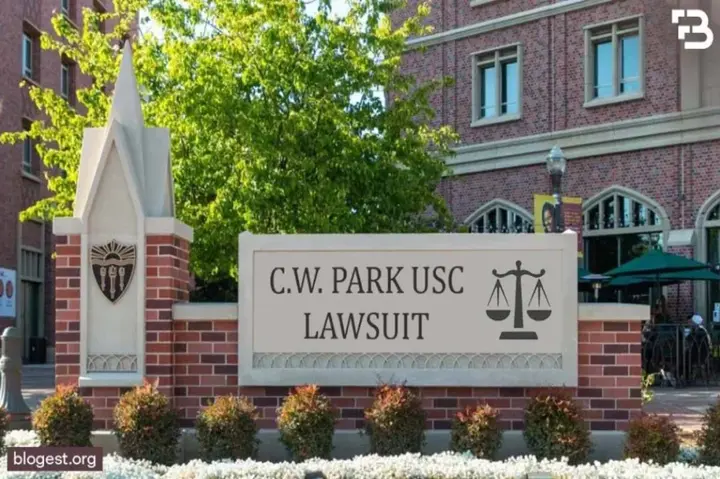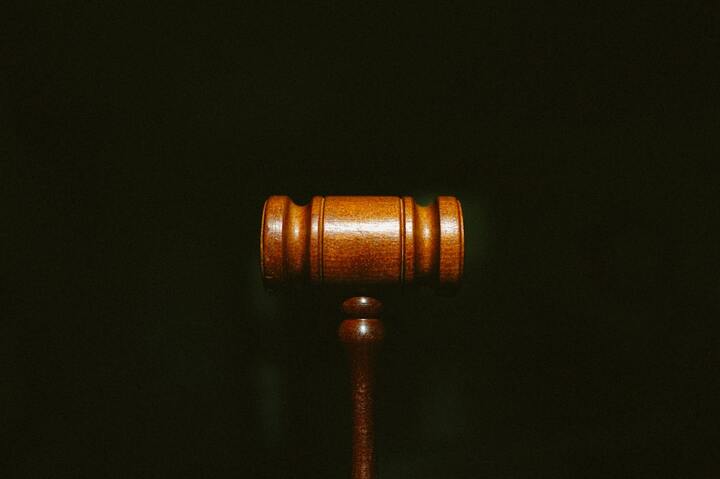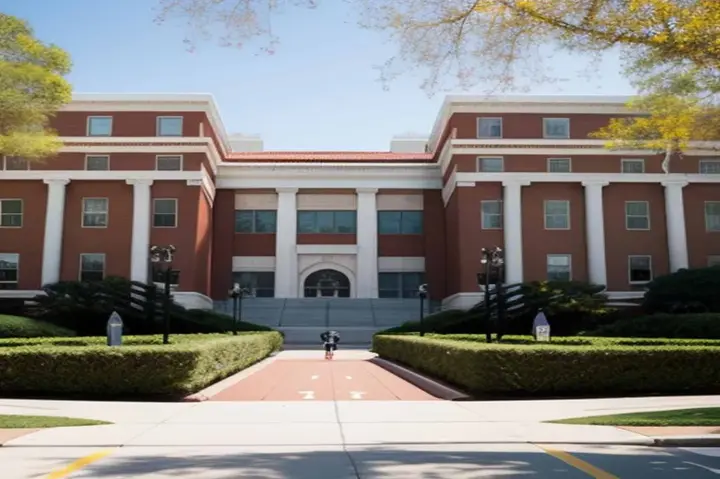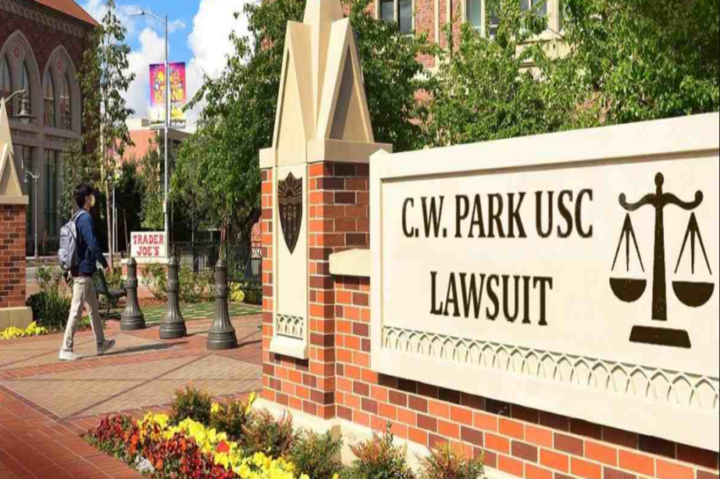Introduction
The C.W. Park USC lawsuit has been making headlines recently, sparking intense debates within the academic community. This legal battle, centered on the renowned University of Southern California (USC), has raised critical questions about academic freedom, university policies, and the rights of both faculty members and students. In this blog post, we will take a closer look at the C.W. Park USC lawsuit, exploring its background, the specific allegations made against the university, USC’s defense, and the broader implications it may have on the future of the institution.
Dr. C.W. Park, a distinguished professor at USC, initiated the lawsuit, claiming that the university’s actions have severely infringed upon his academic freedom and professional reputation. According to Park, the university engaged in retaliatory actions after he voiced concerns about certain administrative policies and decisions that, in his view, compromised the quality of education and research at USC. These allegations have brought to light issues related to governance, transparency, and accountability within the university’s administration.
On the other side, USC has mounted a robust defense, arguing that the measures taken were in line with established policies and were necessary to maintain the integrity and standards of the institution. Therefore, the university asserts that Dr. Park’s claims are unfounded and that his actions were disruptive to the functioning of the academic community. USC’s defense has focused on demonstrating that their actions were justified and that they have always prioritized the welfare of their students and faculty.
Understanding the Basis of the C.W. Park USC Lawsuit
The C.W. Park USC lawsuit is rooted in a contentious dispute that centers around serious allegations of wrongful termination and retaliation. Dr. C.W. Park, a professor formerly associated with the University of Southern Calfornia’s Department of Marketing, has brought this lawsuit against the university, alleging that his dismissal was not only unjust but also a retaliatory action. According to Park, this action was taken against him as a consequence of his vocal opposition to what he perceived as discriminatory practices within the marketing department.
Park’s allegations suggest that the university’s actions were a breach of his academic freedom and his rights as a tenured faculty member, rights that are traditionally protected to ensure academic integrity and the free exchange of ideas. This lawsuit, thus, not only questions the circumstances surrounding Park’s departure from USC but also delves into broader issues of how academic institutions manage internal criticism and protect (or fail to protect) the rights of their faculty. The claims and counterclaims in this legal battle shed light on the complex dynamics between university administration and faculty members, especially around sensitive issues such as discrimination and academic freedom.

Who is C.W. Park?
Dr. C.W. Park is recognized as a leading authority in the field of marketing. Throughout his tenure in academia, he has amassed a noteworthy portfolio of scholarly works, contributing significantly to the marketing discipline through his research, publications, and teaching. His academic journey is marked by a series of accomplishments, including the authorship of influential books and articles that have been extensively cited, highlighting his impact on the field. Park’s expertise has not only advanced the understanding of marketing principles but has also enriched the academic experience for countless students under his mentorship. His commitment to excellence in research and education established him as a venerated figure among peers and students alike.
Beyond his scholarly contributions, Park’s involvement in various academic and professional committees has demonstrated his dedication to the advancement of marketing as a discipline. His role in shaping future marketing scholars and professionals speaks to his passion for education and his belief in its power to effect change.
Park’s career, characterized by its breadth and depth, has left an indelible mark on the academic community, making the circumstances surrounding his lawsuit against USC all the more poignant. His standing within the academic circle underscores the gravity of the allegations and the potential implications of the legal dispute on academic freedom and integrity. As the case unfolds, Park’s legacy in the field of marketing continues to be a testament to his life’s work and the principles he stands for.
The Allegations Made by C.W. Park
In addition, in the legal action initiated by C.W. Park against USC, the core of the dispute lies in Park’s accusations of discriminatory conduct within the Marketing Department. Park articulates that the university perpetuated a culture of bias, wherein faculty members were unjustly favored or marginalized based on race and gender distinctions. This, according to Park, created an environment of inequity that directly contradicted the values of academic freedom and integrity that universities are expected to uphold. He asserts that his vocal criticism of these practices, aimed at fostering a more equitable and inclusive academic atmosphere, was met with retaliation rather than reflection or reform by the university’s administration.
Park’s decision to speak out against these ingrained biases, he contends, was the catalyst for his subsequent dismissal from his position. This action, he claims, was not only a personal affront but also a violation of his rights as a tenured professor, traditionally protected to ensure the free exchange of ideas and to safeguard academic inquiry from external influences or internal censorship.
His lawsuit, therefore, seeks redress not just for the personal losses incurred due to his termination but also challenges the wider implications of such retaliatory practices on academic freedom. By highlighting these allegations, Park’s legal battle against USC brings to the forefront critical issues concerning the governance of academic institutions and their duty to foster an environment where diverse perspectives and equitable treatment are paramount.

USC’s Defense and Counterclaims
The University of Southern California has strongly refuted the claims brought forth by C.W. Park, emphasizing that the decision to terminate his employment was based on substantial grounds that reflect standard university procedures and expectations. According to USC, the measures taken were in direct response to a comprehensive review of Park’s performance metrics and contributions to the academic community, which, in their assessment, fell below the university’s high standards for faculty engagement and scholarly output.
These proceedings underscore the complexity of the dispute and illuminate the broader legal and ethical considerations at play. USC’s response highlights a critical aspect of the lawsuit, focusing on the criteria and processes universities employ to evaluate faculty performance and ensure accountability, while also navigating the delicate balance between institutional governance and individual rights.
Implications of the Lawsuit on Academic Freedom
The legal confrontation between Dr. C.W. Park and the University of Southern California has thrust into the limelight the intricate balance between academic governance and individual freedoms within higher education institutions. This lawsuit embodies a pivotal moment for the academic community, setting the stage for a broader discourse on the protections afforded to faculty members under the umbrella of academic freedom. The crux of this legal dispute delves into whether a university’s response to faculty criticisms, particularly those addressing issues of discrimination and bias, encroaches upon the sanctity of academic freedom. Such freedoms are foundational to the pursuit of knowledge and innovation, allowing scholars to explore, critique, and disseminate ideas without fear of retribution or censorship.
The ramifications of this lawsuit extend beyond the parties involved, potentially influencing how academic institutions across the nation navigate the delicate interplay between ensuring a respectful and equitable work environment and upholding the principles of free academic inquiry. It prompts a reevaluation of the mechanisms universities use to address internal criticisms, ensuring they do not inadvertently stifle dissent or suppress diverse viewpoints. Moreover, the outcome of this legal battle could indicate to faculty members the extent to which they can safely raise their voices against practices they perceive as harmful or unjust within their institutions.
In addition, this case, therefore, does not merely concern the specifics of Park’s allegations and USC’s defense but taps into the broader zeitgeist of academic freedom debates. It underscores the need for clear, fair policies that support the rights of faculty while fostering an environment conducive to learning and scholarly exploration.
Public and Academic Community Reactions
The discourse surrounding the C.W. Park USC lawsuit has rippled through academic circles and beyond, sparking a vibrant conversation about the core values of academia. Within the scholarly community, a chorus of voices has risen, many aligning with Park in solidarity. These supporters advocate for a rigorous examination of academic institutions’ practices, especially concerning allegations of bias and discrimination. Conversations on social media platforms, academic forums, and conferences have highlighted a collective concern over the implications of this lawsuit for academic freedom and the safeguarding of equitable treatment for faculty members across disciplines.
On the other hand, skepticism also finds its place within the dialogue. Critics of Park’s stance question the nuances of the allegations, seeking more evidence or clarity on the matters at hand. This bifurcation of opinion not only illustrates the complexity of the issues at play but also reflects the broader societal debates on freedom of speech, workplace discrimination, and the role of tenure in protecting or possibly hindering academic discourse.

The Current Status of the Lawsuit
The legal proceedings between Dr. C.W. Park and the University of Southern California are actively progressing, with each side bolstering their arguments for the upcoming trial. The attention this lawsuit has garnered is indicative of the broader implications it holds for academic governance, freedom, and discrimination within higher education settings.
The lawsuit remains a closely watched legal battle, with outcomes that could potentially reshape the landscape of academic rights and responsibilities at USC and beyond.
Also Read: Clipart:t4h-x66pih4= turkey
The Future of USC in the Wake of the Lawsuit
Moreover, as the legal battle between Dr. C.W. Park and the University of Southern California unfolds, the ramifications for USC extend beyond the courtroom. The resolution of this lawsuit could necessitate significant introspection and reform within the university, especially concerning its mechanisms for protecting academic freedom and addressing allegations of discrimination. The institution may find itself at a crossroads, with a unique opportunity to lead by example in establishing more transparent, equitable, and responsive administrative processes.
Moreover, USC’s approach to resolving and learning from this dispute could set a precedent for other institutions grappling with similar challenges. USC can redefine its legacy in higher education by actively fostering an environment that encourages diverse viewpoints and vigorously protects academic freedom.
This turning point offers USC an opportunity to emerge as a beacon of progress, demonstrating that even the most prestigious institutions are not immune to scrutiny and must continuously strive to uphold the principles of justice, equality, and academic integrity. The path USC chooses will undoubtedly influence its trajectory for years to come, shaping not only its own future but also the broader landscape of academia.
Conclusion
Moreover, the lawsuit has sparked a wider conversation about the balance between institutional authority and individual rights within academic settings. Faculty members across various institutions are closely watching the case, as its outcome could set a significant precedent for how universities handle internal dissent and the extent to which they can regulate the conduct of their employees. Students, too, are paying attention, as the case may influence policies that affect their learning environment and the overall academic culture. The C.W. Park USC lawsuit underscores the ongoing challenges in higher education regarding academic freedom and administrative control. As universities continue to evolve in response to societal changes and technological advancements, the need for clear, fair, and transparent policies becomes increasingly crucial. The outcome of this lawsuit could potentially lead to reforms in how universities nationwide address these critical issues.
The C.W. Park USC lawsuit is not just a legal dispute but a significant event that highlights the complexities and tensions within the academic world. By examining its background, the specific allegations, USC’s defense, and the broader implications, we gain a deeper understanding of the challenges faced by modern educational institutions and the delicate balance they must maintain between authority and academic freedom.

